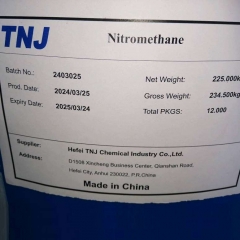Did the Cupric hydroxide can make to 77% WP types? If you aks that, I have to introduce TNJ company for you. TNJ company have more than 15years since 2001. they are not only supply WP types, but alaso supply TC types,or supply as your request. for more help, please contact sales16@tnjchem.com
Copper hydroxide Cu(OH)2 CAS 20427-59-2 used for cupric salts, medicines,  feed additives, bactericides and as analytical reagent, as catalyst, dye mordant, pigment, paper staining agent etc.
feed additives, bactericides and as analytical reagent, as catalyst, dye mordant, pigment, paper staining agent etc.
Description
Copper hydroxide is blue or bluish green gelatin or light blue crystalline powder, relative density: 3.368. soluble in acids, ammonia water and alkali metal cyanides, carbonates, acidic carbonates solution, insoluble in water, will turn darker when heated at 60-80°C, and will be decomposed into black cupric oxide and water at higher temperature.
Specification
Type 95%TC, 97%TC, 50%WP, 77%WP, 80%WP
Cu % ≥ 62.34
Fe % ≤0.2
HCl Insoluble % ≤0.2
Recommended dosage 2~4 kg a.i./ha or 300-400 g a.i./100 L.
Application
1. Protectant fungicide and bactericide. Deposits must be on the crop before fungal spores begin to germinate. For control of Peronosporaceae in vines, hops, and brassicas; Alternaria and Phytophthora in potatoes; Septoria in celery; and Septoria, Leptosphaeria, and Mycosphaerella in cereals, at 2-4 kg/ha or 300-400 g/100.
2. It is used for cupric salts, analytical reagent, as catalyst, dye mordant, pigment, paper staining agent etc.
Packaging
25kg per bag
20mt per 20ft container
Storage & Handling
Stored in draughty and dry warehouse. Packing bag must be tied tightly to prevent dampness
Always refer to the Material Safety Data Sheet (MSDS) for detailed information on handling and disposal.





 TDS of Copper Hydroxide TNJ.pdf
TDS of Copper Hydroxide TNJ.pdf







 chemical.tnj
chemical.tnj +8618949823763
+8618949823763 tnjchem
tnjchem 2881500864
2881500864